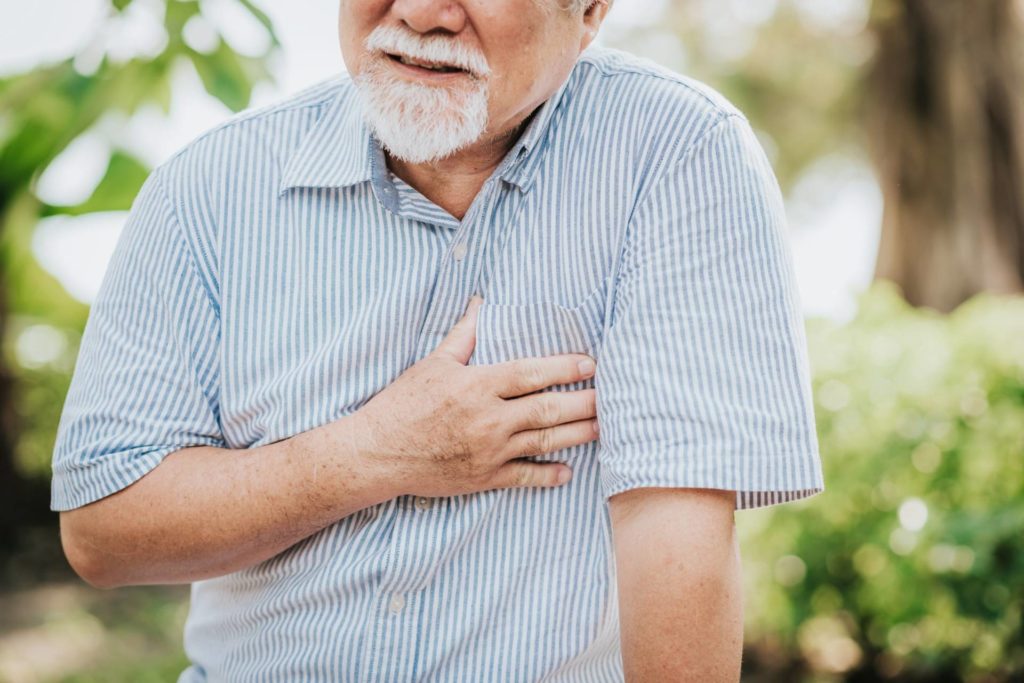What To Do During A Heart Attack Emergency

More than 800,000 Americans suffer a heart attack each year, which averages out to about 1 heart attack every 40 seconds. Hopefully you’ll never find yourself in a situation where you need to respond to a suspected heart attack, but if you do, you’ll be glad you read this blog because time is of the essence during a cardiovascular event. Below, we share some tips on what you should do if you suspect that an individual is suffering a heart attack or similar cardiac episode.
Causes And Symptoms Of A Heart Attack
A heart attack occurs when blood supply to the heart is interrupted. Oftentimes this is the result of a blockage or spasm in a coronary artery. Arterial blockages are typically caused by the formation of plaque in your arteries that hardens and restricts healthy blood flow. Some risk factors that increase your likelihood of developing plaque in your coronary arteries include high cholesterol, high blood pressure and prolonged elevated blood glucose levels. Smoking is also a significant risk factor.
Symptoms that suggest a person may be dealing with a heart attack include
- Chest pain
- Pressure in the chest
- Dizziness
- Nausea
- Shortness of breath
- Pale, sweaty skin
- Radiating discomfort in your arms, neck, jaw or back
- Fatigue
Immediate medical attention dramatically increases a person’s likelihood of surviving a heart attack, so you need to act quickly if you suspect that someone is dealing with a cardiac event.
Actions To Take During A Suspected Heart Attack
The only piece of advice that is always true when it comes to caring for a person dealing with a suspected heart attack is that you need to call 911 right away. Don’t try to get the person to the hospital on your own. You need to let emergency services know about the situation as soon as possible so that they can dispatch assistance and provide advice based on your individual circumstances.
The following information may be helpful, but again it does not trump the individualized advice you receive from the dispatcher or emergency services. After you’ve called 911, help the individual to a comfortable position, which is using sitting or lying on the ground. From there, if the person is responsive, you can help them take any prescription chest pain medication they’ve been given by a doctor. For example, they may take nitroglycerin to take pressure off their blood vessels. If dispatch is still on the phone, let them know that the individual has a heart medication prescription and if you should continue to administer the dose.
If they don’t have a prescription, the dispatcher may recommend giving the person 1 to 2 doses of baby aspirin, which can potentially help with the formation of a blood clot. Again, heed the instructions of the dispatcher first and ask them about proceeding with any medications. They’ll want to relay this information to the emergency response team that arrives on site so that they have a better understanding of the current situation.
Simply put, 911 will be your best bet in the event that you have to respond to a possible heart attack situation. They will be able to get professional help to your location as quickly as possible, and they can walk you through some advice based on your unique situation, since no two emergencies are ever the same.
As we mentioned on a recent blog, Gold Cross Ambulance was recently awarded with the highest level of recognition by the American Heart Association for our ability to provide cardiovascular care in the event of an emergency. Hopefully you’ll never need us, but you’re in good hands if you find yourself dealing with a heart attack emergency in the Fox Valley. For questions or help pertaining to a cardiovascular issue, reach out to our team today at (920) 727-3034.
Leave a Reply